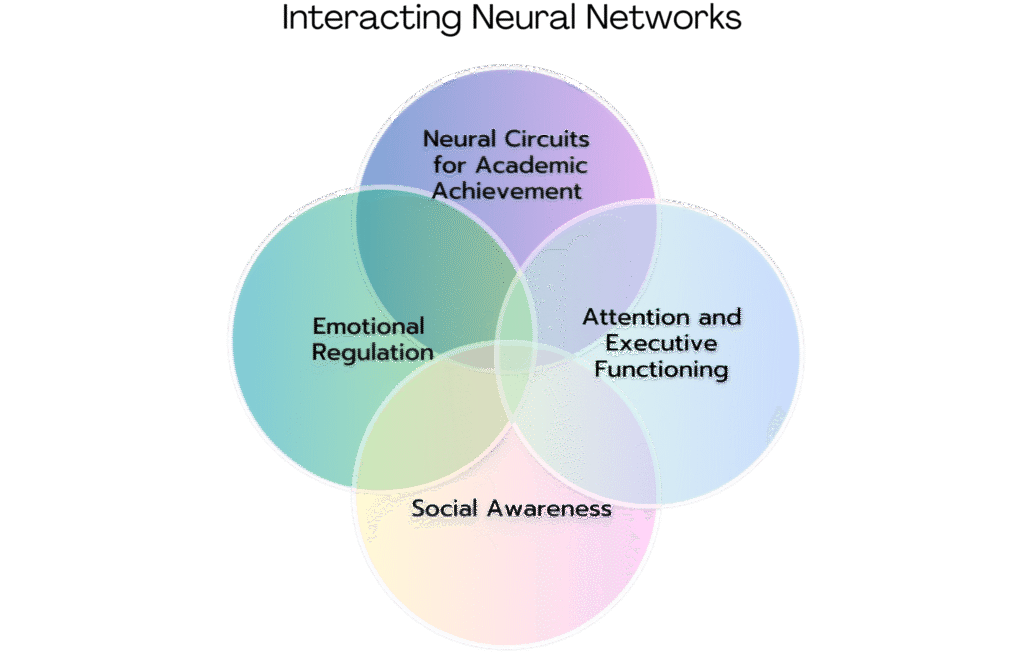(954) 577-3396
Mon - Fri : 8am - 5pm
Mon - Fri : 8am - 5pm
The human brain consists of about 80 to 100 billion neurons, organized into neural “networks” that handle specific tasks. These networks process sensory information in a structured way, becoming more complex as they move from basic brain areas to advanced regions.
The effectiveness of these networks determines how well a person can handle social, emotional, and academic challenges as they arise. When these networks do not align with environmental demands, individuals may struggle, regardless of their overall intelligence. This can lead to awareness of their difficulties, causing frustration and feelings of inadequacy, which trigger stress responses like fight, flight, or freeze. In this state, individuals might demonstrate or experience avoidance, oppositional behavior, depressive symptoms, anxious symptoms, low self-esteem, and further academic difficulties.

In every classroom setting, a specific set of prerequisite cognitive abilities and academic readiness is essential for effectively managing assigned tasks. When there is a misalignment between the necessary aptitudes and the student’s academic preparedness, the individual may perceive the environment as threatening, thereby triggering a fight, flight, or freeze response.
The ability to objectively assess the level of challenge within an environment is crucial. Upon perceiving a challenge, it is essential for the individual to acknowledge and manage the emotions associated with this perception, while also developing regulatory mechanisms to control the innate impulses to fight, flee, or freeze.
Call us or request a consultation through our website form. Our intake coordinator will explain the evaluation process, answer your questions, and find the best time for your child. To make our services accessible, our fees are structured based on the psychologist's experience (ranging from intern to senior licensed psychologist).
We'll ask you and your child's teachers to complete background information and rating scales. This helps us gain a comprehensive understanding.
Your child will engage in 4-6 hours of assessments with a psychologist, usually spread over several sessions to ensure their comfort. Our goal is to highlight their strengths and identify areas where they might need support, making them feel comfortable and capable throughout.
Within two weeks after testing, we'll meet with you to discuss the findings and create a personalized plan to help your child thrive. For older students, we may also suggest a meeting with them to discuss their strengths and how to best support their development.
If you wish and the school agrees, we'll collaborate in a meeting with the psychologist, parents, and school staff. This meeting will focus on your child's learning profile, strengths, and appropriate support strategies to help them reach their full potential.